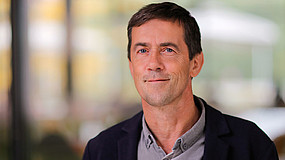Metamodernity - by and with Dr. phil. habil. Maik Hosang
| Begin |
19. October 2023 -
12:15 Uhr |
| End | 19. October 2023 - 13:45 Uhr |
Campus Görlitz, G I (Blue Box), Room 105
or digigal via:
Metamodernity - what is it and how does it come about?
Cultures and culture in general are like a constantly changing river, a permanent emergence and decay of societies and their self-reflections in language, art and science. Nevertheless, larger epochs and/or phases can be delineated and distinguished from one another, each characterized by certain cultural patterns (memes, symbols, values, norms, everyday and deep cultural habits, techniques, economic and social forms, etc.). Common modern social and cultural history and philosophy usually distinguishes three epochs with strongly divergent cultural patterns: Pre-modernity, modernity and post-modernity. For some years now, however, a further differentiation and corresponding terminology has been developing with a view to the present and future: metamodernism and metamodernism.
New cultures, including metamodernism, are hardly visible at first, as the images, words and even sciences are occupied by the habits of previous cultures. It is therefore worth following the traces of the new and making them visible.
What are metamodernism and metamodernism?
In their 2010 essay "Notes On Metamodernism" in the Journal of Aesthetics & Culture and as a separate book in 2014, cultural theorists Timotheus Vermeulen and Robin van den Akker proposed the category of metamodernism as an overarching designation of various tendencies that go beyond the characteristics of both modernism and postmodernism and integrate these new qualities in many respects.
The prefix "meta-" refers to Plato's metaxy, which denotes a movement between opposite poles and beyond.
They first discovered these new tendencies and qualities in art, particularly in the neo-romantic works of young artists. They described this "metamodern sensibility" as a kind of "informed naivety" and "pragmatic idealism", among other things, and also understood these as cultural reactions to recent global developments and events, such as climate change, political instability and the digital revolution. For a collection and overview platform on projects and works of metamodern art based on this, see: https://whatismetamodern.com/
Based on the above-mentioned discovery, an increasingly active and differentiated international discussion has been taking shape in recent years in the form of international conferences, platforms and publications. So far, however, this exciting development has hardly been received in German-speaking countries.
Further information will be available here soon.
